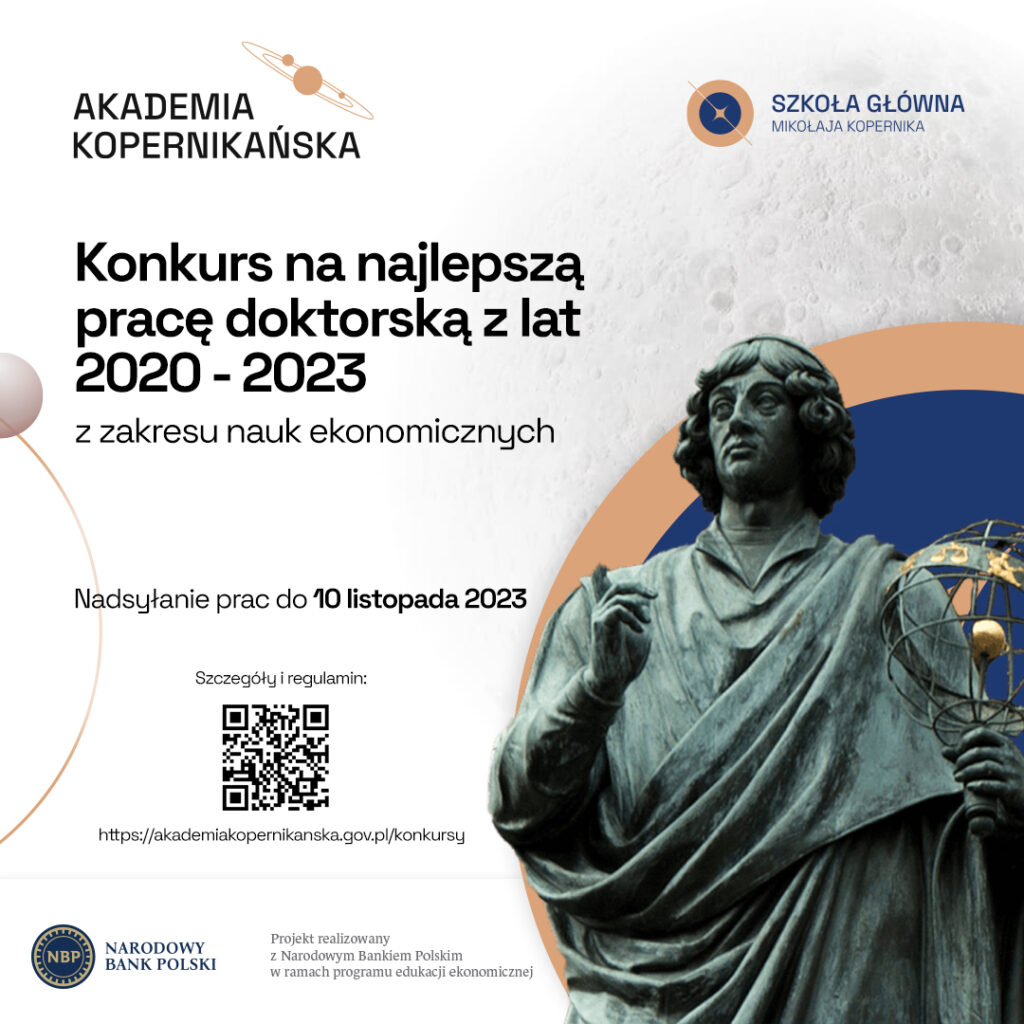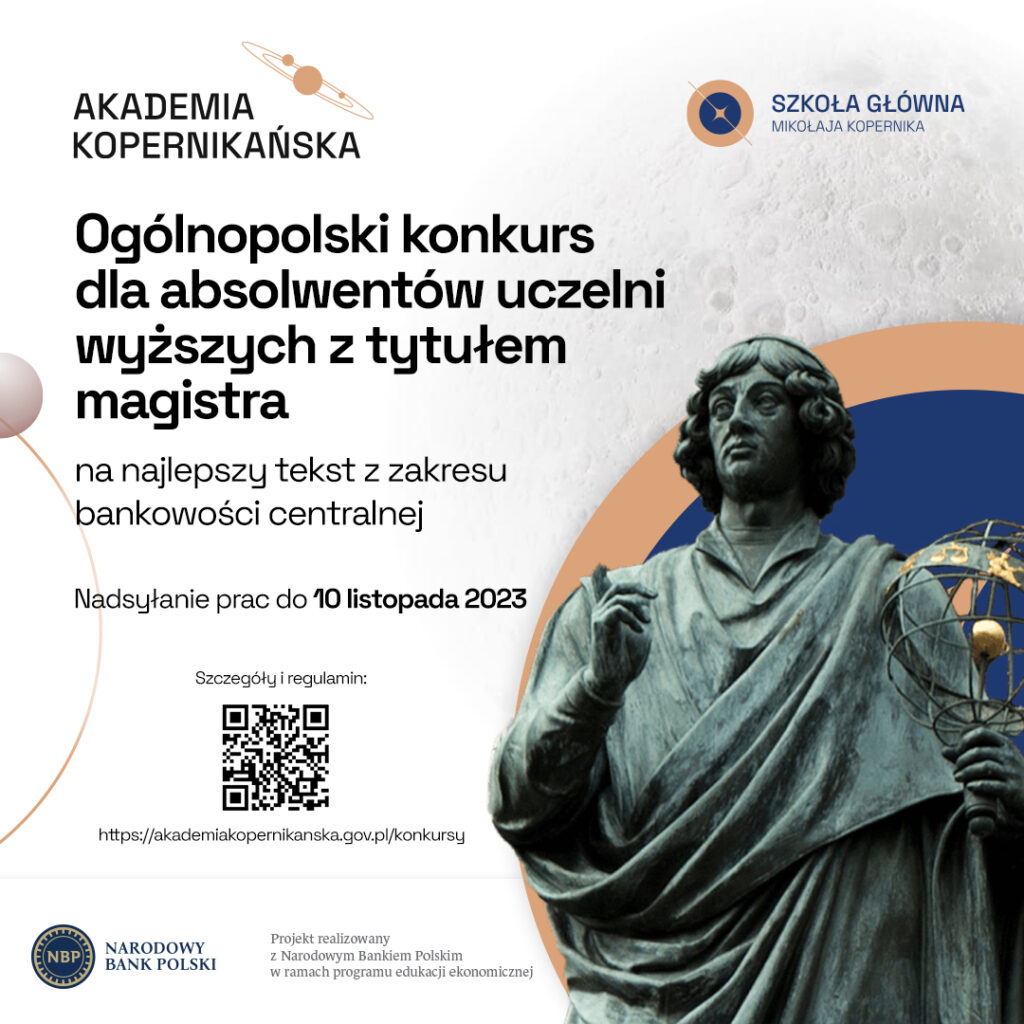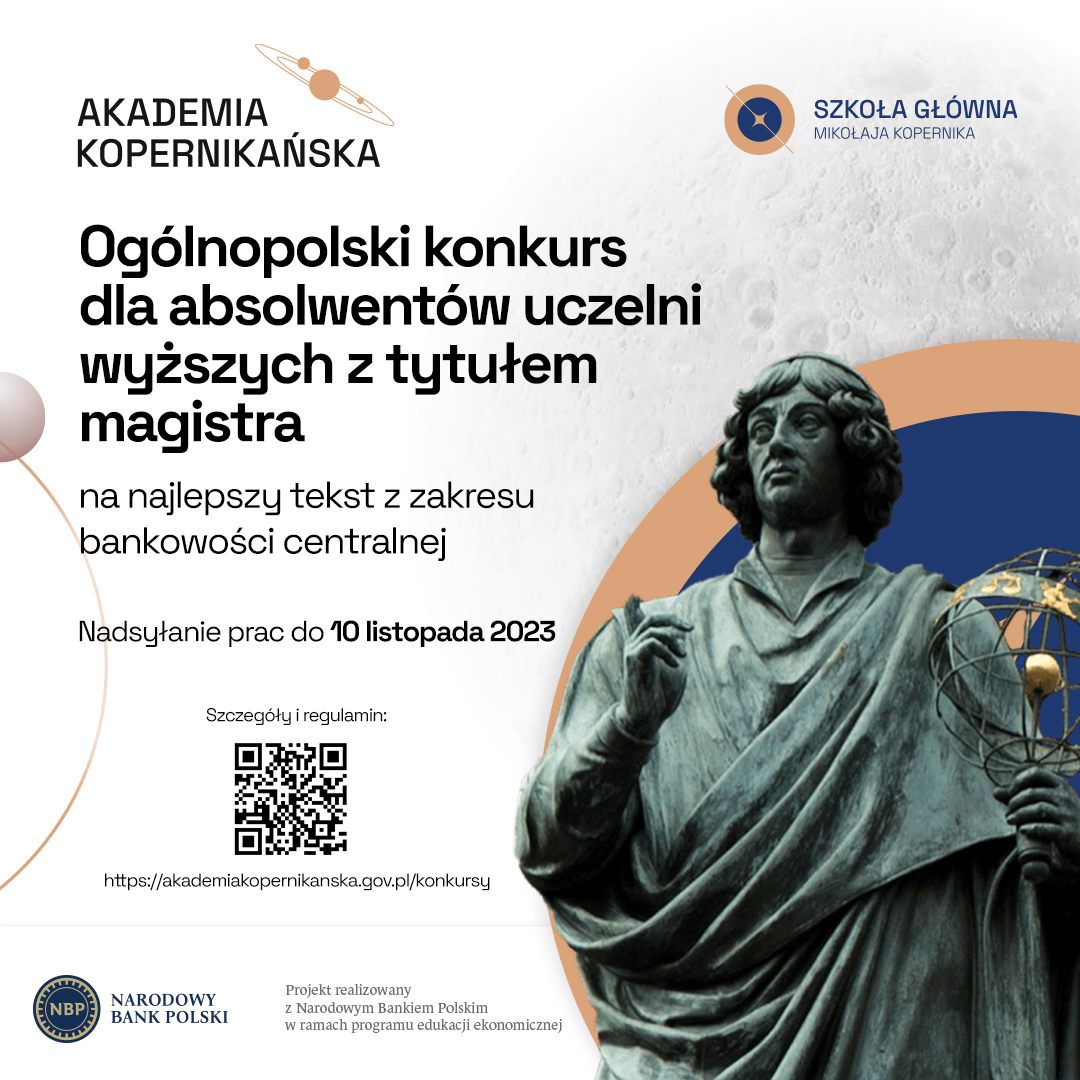
Professor, this year marks the 550th anniversary of the birth of Nicolaus Copernicus. Why are competitions in economics one of the elements of the celebrations?
Prof. Krzysztof M. Górski, Secretary General of the Copernican Academy: Yes, our competitions are held in the context of this special anniversary. Copernicus was not only an outstanding astronomer, but also an economist who contributed, among other things, to the development of monetary theory. His works in the field of economics are rather overshadowed by his astronomical achievements, but they are no less important for the field of economic science. Our competitions aim to emphasise the importance of an interdisciplinary approach to science, of which Copernicus was an outstanding representative.
What specific achievements of Copernicus in the field of economics inspire participants in the competitions?
Prof. Gorski: Copernicus was the forerunner of the quantity theory of money. In his work Monetae cudendae ratio, he presented the principle that an excessive supply of money leads to a decline in its value, which is a fundamental principle of economics today. Copernicus’ thoughts are still relevant today and are an inspiring point of reference for economic researchers, especially those concerning the stability of the monetary system and the issue of inflation.
How do the themes of the competitions relate to Copernicus’ heritage?
Prof. Górski: Our competitions draw on the legacy of Copernicus by promoting research into banking and economic systems. Participants are given the opportunity to present their ideas on contemporary economic challenges, using achievements and methodologies that could be considered, in a sense, a continuation of Copernicus’ thought. In this way, the Copernican Academy seeks to uphold the legacy of this great scientist by highlighting his contributions not only to astronomy but also to economics.
We encourage you to take part in the competition for the best text on central banking and the competition for the best doctoral thesis in economic sciences, organised by the Copernicus Academy in cooperation with the National Bank of Poland as part of the economic education programme. All details are available at: website.

